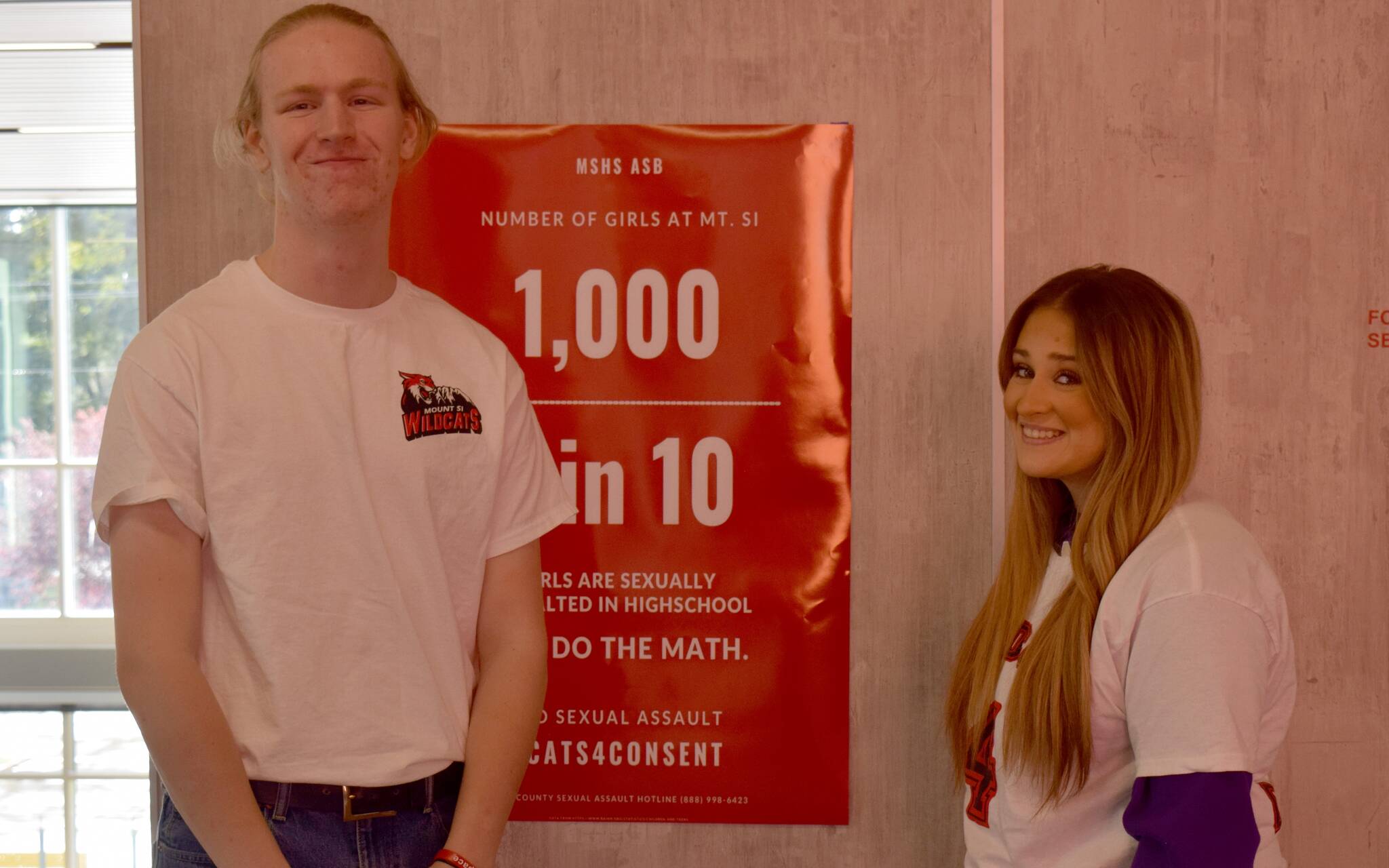This past fall, Mount Si High School students sent a mental health survey to students in an effort to better understand what work could be done to improve the school’s culture.
What quickly became clear, however, was that there was overwhelming concern from students about one topic: sexual assault.
“We got an unsettling number of remarks about sexual assault and dating violence occurring at our school,” said Garner Brown, a senior and ASB president.
“With so many questions in so many different areas and for it to be so overwhelmingly aimed at sexual assault, it was definitely alarming and not something we expected,” said Marisol May-Gutierrez, a junior and leadership student.
That survey became the basis for Cats4Consent, a student-led effort to educate and end sexual assault at Mount Si that has garnered huge support from the student body and is seemingly one of the first of its kind in the region.
Education around sexual assault and consent has typically been more frequent on college campuses than in high school classrooms, where data has shown nearly one out of every five women are victims of sexual assault.
However, data over the last decade has also shown a striking rise in sexual violence among young adults that has called for increased education among young people. Findings from the U.S. Department of Education in 2020 showed a more than 50% rise in reports of sexual violence among those in K-12 schooling between 2015 and 2018.
Although there’s no data on sexual assault specific to Mount Si, national numbers from RAINN, the nation’s largest anti-sexual abuse organization, found that one in 10 girls are on average victims of sexual assault.
At Mount Si, Brown said a student’s sexual assault education is only a small portion of its health class, a class that is one semester of one school year.
“If you break it down, there’s three to four slides in a slide show and that was a kid’s entire high school education on sexual assault,” he said. “I hope that changes.”
May-Gutierrez said she thinks a lot of the challenges are due to a lack of information and education available to students. She said she doubts most people her age are aware that they cannot consent while drunk or high.
“It’s never been talked about what healthy sexual relationships look like,” she said. “”I think so much of what occurs is because of lack of informing and I think the second we talk about that piece, is when we’re going to see those numbers go down.”
Since Brown first proposed the idea of a sexual assault awareness campaign to members of the Student Senate, it immediately became a priority. May-Gutierrez said it elicited more attention than anything she’s seen in her three years attending senate meetings.
“The culture of Student Senate meetings before this happened was no one ever went out of their way to talk,” she said. “The second Garner brought this up, it was student after student saying ‘yes this is an issue here, yes this is a problem we need to do something about.’”
Since then, Brown, May-Gutierrez and other leadership students have hit the ground running to bring the program to fruition by its launch date in April, which is Sexual Assault Awareness Month.
Thus far the campaign has been met with overwhelming support by students and faculty. May-Gutierrez said it has also attracted attention from students in other King County schools looking to adopt similar programs.
The program has focused on awareness, including posters, T-shirts and wristbands that share resources for those affected by sexual assault.
The campaign has also hosted a series of assemblies to educate parents and students. Brown and May-Gutierrez coordinated with JT DeRouen, a member of the school’s football team, to host an assembly specifically for spring athletes — something they’re hoping to continue next year.
The school also welcomed Mike Domitrz, an internationally renowned expert on sexual assault and consent, to speak at separate assemblies for students and parents.
Although Brown is graduating this year, he and May-Gutierrez both said they recognize there is still a lot of work to be done.
In the future, they’re hoping to provide an in-school time for a sexual assault support group with school counselors and continue to build on the work they established this year. That includes setting the groundwork for students before they head off to college and working with adults to adjust the school’s health curriculum.
“Hanging posters is great, getting kids information is great, but it really comes down to deep education,” Brown said. “Once kids understand that sexual assault is happening, that’s when the cultural change can happen.”


